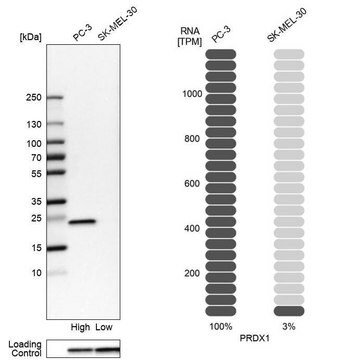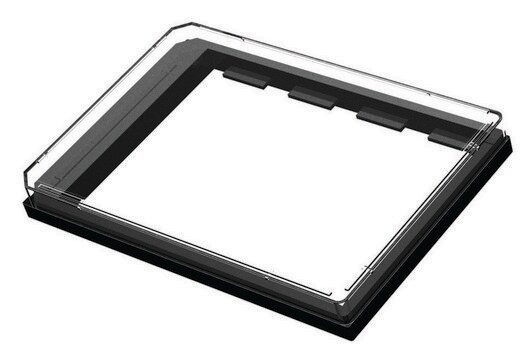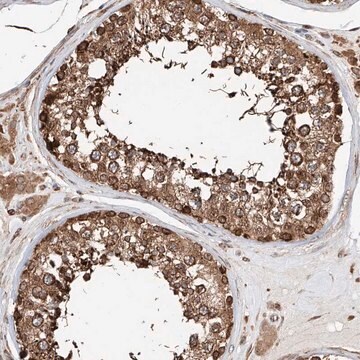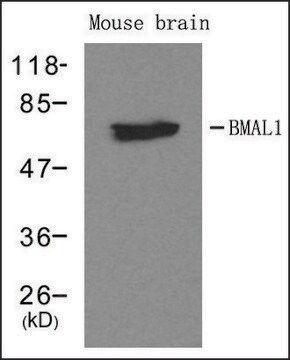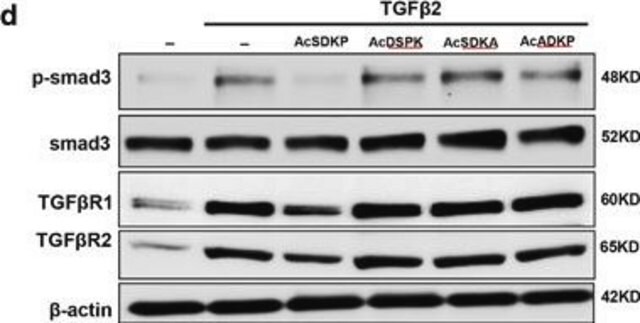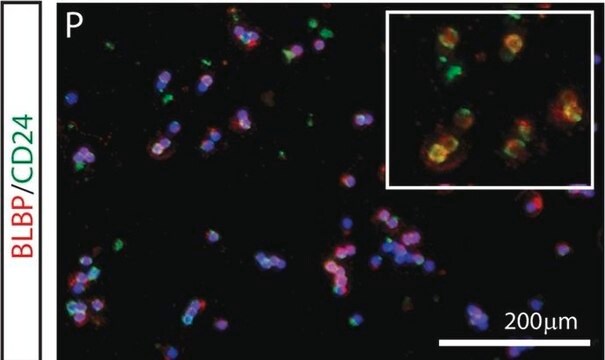HPA038440
Anti-SPAG6 antibody produced in rabbit

Prestige Antibodies® Powered by Atlas Antibodies, affinity isolated antibody, buffered aqueous glycerol solution
Sinónimos:
Anti-CT141, Anti-Repro-SA-1, Anti-pf16
About This Item
Productos recomendados
origen biológico
rabbit
conjugado
unconjugated
forma del anticuerpo
affinity isolated antibody
tipo de anticuerpo
primary antibodies
clon
polyclonal
Línea del producto
Prestige Antibodies® Powered by Atlas Antibodies
formulario
buffered aqueous glycerol solution
reactividad de especies
human
validación mejorada
orthogonal RNAseq
recombinant expression
Learn more about Antibody Enhanced Validation
técnicas
immunoblotting: 0.04-0.4 μg/mL
immunohistochemistry: 1:500-1:1000
secuencia del inmunógeno
AVPLLVLCIQEPEIALKRIAASALSDIAKHSPELAQTVVDAGAVAHLAQMILNPDAKLKHQILSALSQVSKHSVDLAEMVVEA
Nº de acceso UniProt
Condiciones de envío
wet ice
temp. de almacenamiento
−20°C
modificación del objetivo postraduccional
unmodified
Información sobre el gen
human ... SPAG6(9576)
Descripción general
Inmunógeno
Aplicación
Acciones bioquímicas o fisiológicas
Características y beneficios
Every Prestige Antibody is tested in the following ways:
- IHC tissue array of 44 normal human tissues and 20 of the most common cancer type tissues.
- Protein array of 364 human recombinant protein fragments.
Ligadura / enlace
Forma física
Información legal
Cláusula de descargo de responsabilidad
¿No encuentra el producto adecuado?
Pruebe nuestro Herramienta de selección de productos.
Código de clase de almacenamiento
10 - Combustible liquids
Clase de riesgo para el agua (WGK)
WGK 1
Punto de inflamabilidad (°F)
Not applicable
Punto de inflamabilidad (°C)
Not applicable
Certificados de análisis (COA)
Busque Certificados de análisis (COA) introduciendo el número de lote del producto. Los números de lote se encuentran en la etiqueta del producto después de las palabras «Lot» o «Batch»
¿Ya tiene este producto?
Encuentre la documentación para los productos que ha comprado recientemente en la Biblioteca de documentos.
Nuestro equipo de científicos tiene experiencia en todas las áreas de investigación: Ciencias de la vida, Ciencia de los materiales, Síntesis química, Cromatografía, Analítica y muchas otras.
Póngase en contacto con el Servicio técnico